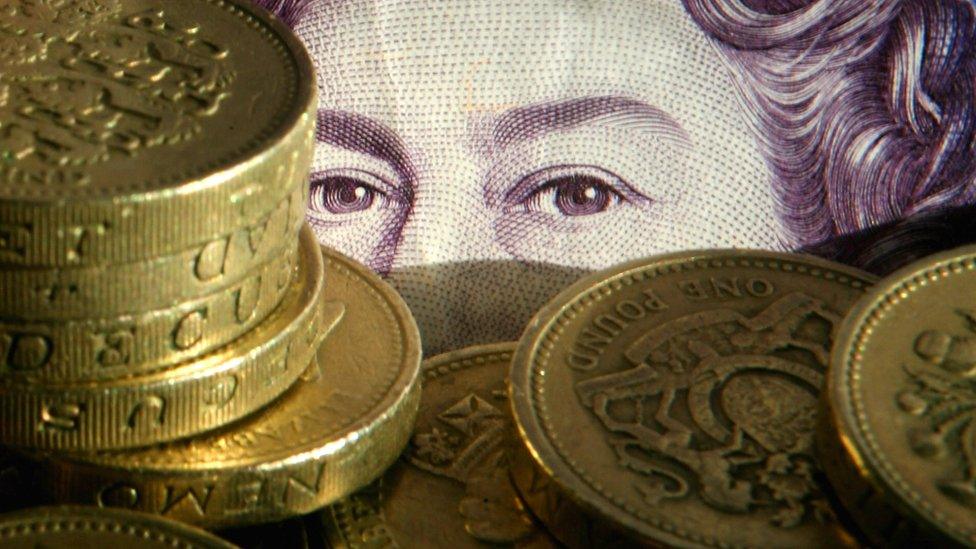Osborne stakes his reputation on a 2020 surplus
- Published
- comments

George Osborne set himself three fiscal rules - to cap welfare spending, to bring down debt as a proportion of national income and to produce a surplus by the end of the Parliament.
The welfare cap was breached when the government was forced into a U-turn on cuts to tax credits last year.
Today, the rule on reducing debt has also been broken.
With the UK economy slowing, public sector net debt as a proportion of gross domestic product will rise this year, the Office for Budget Responsibility says.
That leaves the chancellor with one rule still extant - a budget surplus by 2020.
Matt Hancock, the Cabinet Office minister, insisted to the BBC that the rule will not be breached.
Forecast risk
And Mr Osborne has staked his reputation on it.
To get there, the government is going to borrow a lot more over the next three years.
Around £38bn more according to the think tank, the Resolution Foundation.
And then plan for large tax cheques to arrive - largely from major businesses - by the next election.
The Budget Red Book says that in 2019-2020, business tax payments will increase rapidly.
Changing the timing of corporation tax payments will bring in nearly £6bn, the Treasury predicts.
Commercial stamp duty reform should bring in £560m and restricting corporation tax relief nearly £1bn.
The £3.5bn spending cuts to government departments will also kick in that year.
The Treasury argues that the changes, allied to lower debt interest payments, means the government can hit a surplus by 2020.
Watch those numbers closely and remember they are only forecasts.
The chancellor is staking an awful lot on them turning out correctly.